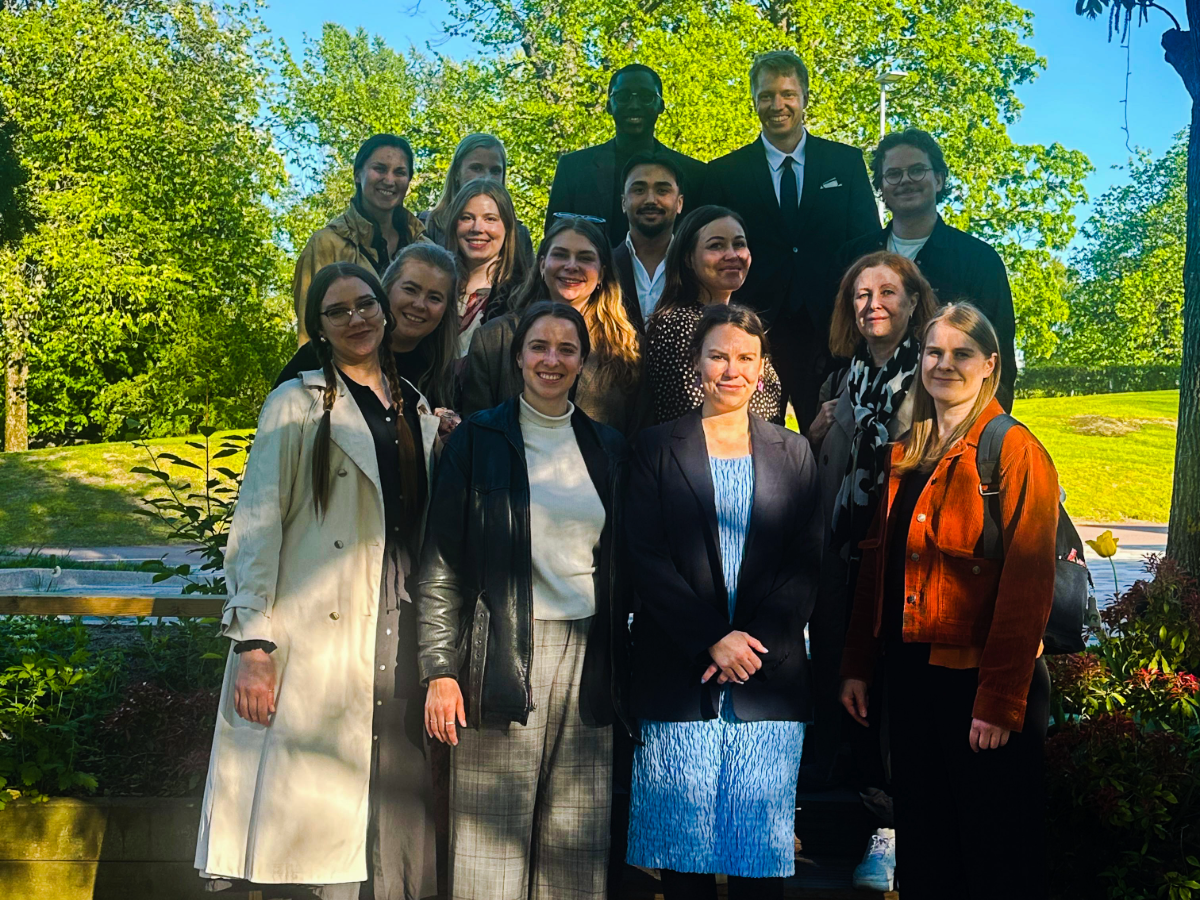“How about civilian crisis management? Have you thought about it?” This question was asked by a good colleague and friend of mine at Customs about five years ago during our shift on duty. From that moment on, a spark was ignited that led me deeper and deeper into the world of civilian crisis management. I had never heard of the field before, but after that day, I began searching for all the information I could find on the internet and in literature. Discussions with my colleague about civilian crisis management continued whenever our shifts coincided – and often also in my free time. The more I heard stories about international operations and experiences, the stronger the feeling grew that I wished I could help, experience, and participate in them myself.

WISE Mentoring Program, closing event of the eighth class. In the photo: program participants and Executive Director Anne Palm celebrating the conclusion of their mentoring journey.
I firmly believe that young people are a significant resource in civilian crisis management tasks. In my opinion, this has not yet been optimally utilised, although the Crisis Management Centre has done an excellent job in promoting the Youth, Peace, and Security agenda by providing information on the field’s themes and by employing university interns annually. It is encouraging to note that the European Union has also taken up this theme and launched a new pilot program, which aims to recruit young experts for civilian crisis management tasks. This is a crucial step towards a more inclusive, diverse, and future-oriented approach to civilian crisis management.
Planning my career, the criteria for myfuture job were the significance of the work and the opportunity to help other people. Guided by this idea, I applied to the Border and Coast Guard Academy, from which I graduated as a junior Coast Guard. I started my civil service career at the West Harbour Border Guard Station in Helsinki.
In addition to my work, I studied at the University of Helsinki, achieving a Bachelor’s degree in Baltic and Slavic Studies, as well as a Master of Arts degree in Languages. The studies again offered me an opportunity for an international atmosphere and experiences that I had been longing for, after living abroad in my childhood. After graduating, I have worked as a Customs Inspector and Responsible Officer at the Customs at Helsinki Airport. . I am also studying in the Master’s Program in Cybersecurity at the University of Jyväskylä. I have been fortunate in that Customs has always encouraged and supported my studies, offering me diverse work and educational opportunities.
I knew that if I wanted to work in civilian crisis management tasks that matched my expert profile in the future, I would first have to complete the basic course in civilian crisis management. However, getting onto the course is not easy, as the selection is influenced by, among other things, the world political situation and the high standard of the applicants. My place was only secured on my fourth application, which shows that a few negative decisions should not discourage you. Perseverance and determination are rewarded – sooner or later.
The civilian crisis management basic course fully met my expectations and even exceeded them. It was the best training I have ever attended. The course was dynamic and comprehensive, offering an in-depth overview of the various themes and tasks involved in civilian crisis management. The trainers were top experts in their field, possessing both solid theoretical and practical experience in their respective areas. The learning was also supported by the fact that the course participants were motivated and knowledgeable; the team spirit and shared sense of purpose created an inspiring learning environment. The course also provided an excellent framework for networking with both trainers and other course participants.

Antoni Sipilä works as a Responsible Officer for Airport Customs at the Helsinki Airport.
One of the most essential factors in my own professional development has been the opportunity to participate in mentoring as part of my journey. I highly recommend it to anyone interested in civilian crisis management. The WISE mentoring program (in Finnish), in particular, has been a valuable and inspiring experience for me. Such support structures are invaluable in strengthening the skills and self-confidence of future generations of experts.
Antoni Sipilä


